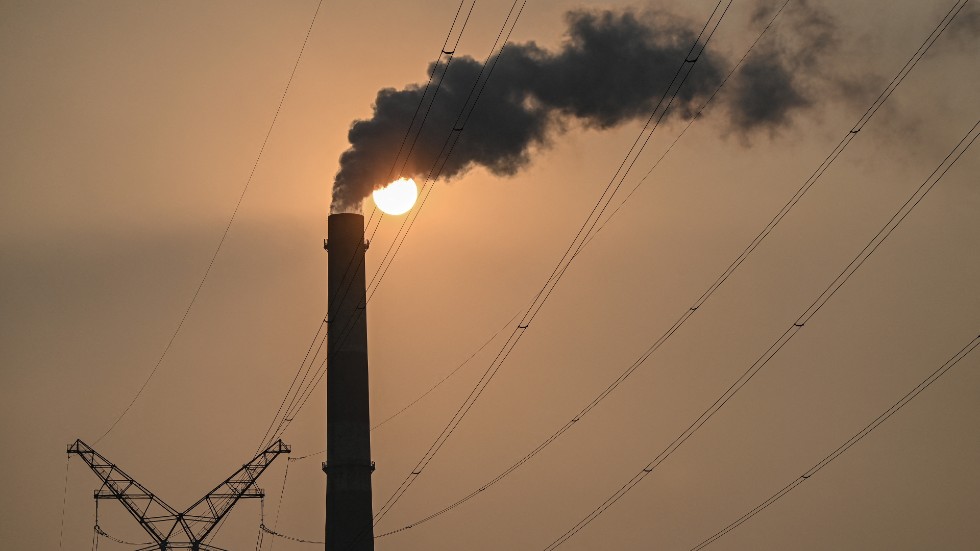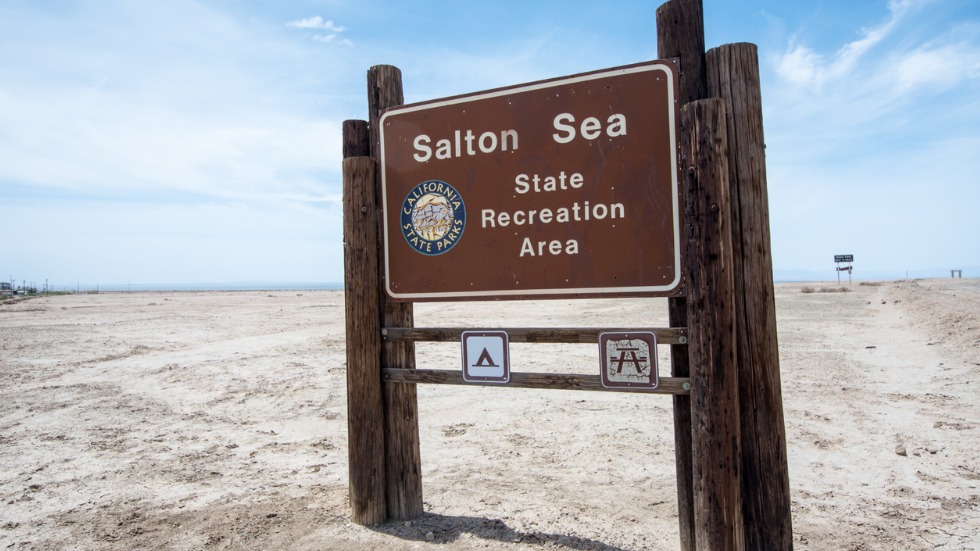Equilibrium/Sustainability — Presented by Southern Company — COVID-19 kills snow leopards at US zoo
Today is Monday. Welcome to Equilibrium, a newsletter that tracks the growing global battle over the future of sustainability. Subscribe here: digital-staging.thehill.com/newsletter-signup.
Three snow leopards at a Nebraska zoo died of complications from COVID-19 this weekend — the latest such deaths among captive species in zoos around the world, The Washington Post reported.
The snow leopards “were beloved by our entire community inside and outside of the zoo,” the Lincoln Children’s Zoo said in a statement. Just a few thousand of these cats are estimated to remain in the wild.
Since April 2020, when a tiger first tested positive for coronavirus at the Bronx Zoo, dozens of other zoo animals have become infected — including the first two cases in hyenas at the Denver Zoo and eight positive cases among big cats at the St. Louis Zoo this month.
“Humans are being devastated around the world,” Alex Herman, vice president of veterinary services at the Oakland Zoo, told the Post. “Animals are being devastated by it as well,”
Today we’ll examine a final deal reached at the United Nations Climate Change Conference (COP26) in Glasgow this weekend, which pleased some and drew criticism from many. Then we’ll look at the spike in gas prices — and what, if anything can (or should) be done about it.
For Equilibrium, we are Saul Elbein and Sharon Udasin. Please send tips or comments to Saul at selbein@digital-staging.thehill.com or Sharon at sudasin@digital-staging.thehill.com. Follow us on Twitter: @saul_elbein and @sharonudasin.
Let’s get to it.
India, China face climate scrutiny

While the final text of the COP26 climate agreement — the “Glasgow Climate Pact” — included unprecedented mentions of coal and fossil fuels, Western officials slammed India and China for toning down the deal’s approach to a global coal phaseout.
“China and India will have to explain themselves and what they did to the most climate-vulnerable countries in the world,” COP26 President Alok Sharma told the BBC’s Andrew Marr on Sunday.
What’s in the final deal? The pact calls for countries to strengthen their 2030 climate targets by the end of next year, while pushing for global emissions levels to be cut 45 percent by the end of the decade, compared to 2010 levels, The Hill reported. Developed countries also agreed to double their collective financing for developing countries by 2025.
The deal still includes explicit mentions of coal and fossil fuels, but India proposed changing the language from phasing out unabated coal — coal production that doesn’t use carbon capture technologies — to phasing it down.
The final text also calls for countries to curb “inefficient” fossil fuel subsidies, rather than all fossil fuel subsidies, as we discussed on Friday.
So what was China’s role? India’s visible resistance may have “helped conceal the role played by China,” but that country was very much involved, a Bloomberg piece observed.
During last-minute discussions on Saturday, China advocated for language similar to the text it had agreed to in a joint statement with the U.S. a few days prior, according to Bloomberg. But India’s environment minister was the one to read out the new version, Bloomberg reported.
Blame game: An editorial in China Daily — owned by the Chinese Communist Party — said that the commitment of developed nations to support developing countries would be “the key to averting catastrophe.”
“The emissions they discharged during their industrial development were much more than what the developing countries do today,” the editorial stated.
Still dependent on coal: The Hong Kong-based South China Morning Post, on the other hand, noted that China’s updated emissions reductions commitments only increased the share of “non-fossil fuels” from 20 percent to 25 percent in total primary energy consumption.
In October, China produced quantities of coal — which accounts for more than half of the country’s power generation — not seen in six years, The Washington Post reported, citing the National Bureau of Statistics.
When asked about Sharma’s comments regarding China and India, China’s foreign ministry spokesman Zhao Lijian said that China has already made “enormous efforts” in controlling coal consumption, Reuters reported.
A MESSAGE FROM SOUTHERN COMPANY
At Southern Company, we achieved our interim net zero energy goal ten years early. Today, we continue our work toward a net zero future. Learn more.
THE ‘ONE-SIZE-FITS-ALL APPROACH’ DEBATE
India takes the stage on behalf of developing countries: Indian Environment Minister Bhupender Yadav hailed the COP26 deal as a “success,” stressing that his delegation “articulated and put across the concerns and ideas of the developing world quite succinctly and unequivocally,” according to the Times of India.
“Developing countries have a right to their fair share of the global carbon budget and are entitled to the responsible use of fossil fuels within this scope,” the minister said.
Meanwhile, a senior delegation member told the Hindustan Times that the new language provides developing countries with “more flexibility to meet mitigation targets,” stressing that a “one-size-fits-all approach is not the best way to evolve consensus on global issues.”
A “fragile win”: Despite Sharma’s disappointment with China and India, the COP26 president told the BBC that he still felt the deal was “a historic achievement” and a “fragile win.” Likewise, he maintained that the agreement kept the goal of keeping global warming under 1.5 degrees Celsius (2.7 degrees Fahrenheit) “within reach.”
And Jason Bordoff, dean of Columbia Climate School, tweeted that “all the hot takes slamming COP26 as meaningless are wrong.”
Last words: The COP26 takeaway, Boroff said, should include optimism that “decarbonization is possible,” as well as “acute concern that we’re far from taking the needed policy, finance and technology steps to do so.”
A struggle over gas prices

Amid a broader push to get the global economy off fossil fuels, the Biden administration is struggling with the perceived political liability of high gas prices — even though that’s something over which the presidency has little control.
First, gas prices. California’s gas prices hit a record-setting $4.62 a gallon on Monday as rainstorms shut down gas refineries — against a national average of about $3.40 a gallon, CNN reported.
Prices have been so high that Senate Majority Leader Charles Schumer (D-N.Y) called on the Biden administration to open up the U.S. Strategic Petroleum Reserve to get “immediate relief at the gas pump,” The Hill reported.
To put those prices in context: Prices are flirting with the highs of the period between 2012 and 2014, when the national average occasionally peaked around $3.90, according to the Energy Information Agency.
This was exacerbated by a broader move against fuel-efficient vehicles during the Trump administration, which slowed and reversed a long-running industry increase in gas mileage — which dropped below 25 miles per gallon in 2021, USA Today reported.
Or in real terms: Putting those numbers together, on average — accounting for both SUV drivers in expensive-gas California and hybrid drivers in cheap-gas Texas — it costs about $.15 cents to drive a mile, up from about $.08 this time in 2020, or about $.10 a mile during the Trump years.
But the move toward SUVs and heavy pickups means many people are paying much more than that.
Why are prices higher? Two long-running trends: first, a rise in travel and economic activity as the world emerges from the pandemic, without the usual slowdowns in travel that come with the fall return to work and school, CNN reported.
The second is more long running: a general, rising reluctance among investors to put more money into new oil and gas development, which the International Energy Agency said in May had to stop immediately, according to The Hill.
And earlier this month OPEC+, the principal union of global oil producers like Saudi Arabia and Russia, rebuffed Biden’s request to increase production, The Associated Press reported.
WHAT DO WE DO?
Democrats are now in a strange position: As Congressional Democrats attempt to move forward a $1.75 trillion climate and social policy bill, they are weathering attacks from Republicans over gas prices, The Wall Street Journal reported.
But in a global oil market, the president has little control over gasoline prices. His policy options represent “a huge toolbox, but most of the tools aren’t that useful,” Kevin Book of Clearview Energy Partners told NPR.
For example, increasing drilling in the Strategic Petroleum Reserve in Texas — or issuing more oil leases on federal lands and waters — might lead to a small, temporary fall in oil prices, according to NPR.
However, supplies are finite, it takes time for oil to be refined, and nothing keeps that refined oil in the United States, NPR reported.
Remember, oil is a global market. If prices are lower in the U.S. than elsewhere — which would be the goal of any release — then it will be sold elsewhere.
But didn’t there used to be an oil export ban? Yes — from 1975 until 2015, when former President Barack Obama lifted it.
In addition to the release from the Strategic Petroleum Reserve, a group of 11 Democratic senators, including Elizabeth Warren (D-Mass.), called for the Biden administration to reinstate that ban.
Oil producers don’t like that idea. An export ban “probably makes prices higher, not lower,” Karr Ingham of the Texas Alliance of Energy Producers told Fox Business.
Last words: White House press secretary Jen Psaki said that the high prices made for “an even stronger case for doubling down our investment and our focus on clean energy options, so that we are not relying on the fluctuations and OPEC,” E&E News reported.
A MESSAGE FROM SOUTHERN COMPANY
At Southern Company, we achieved our interim net zero energy goal ten years early. Today, we continue our work toward a net zero future. Learn more.
Monday Miscellanies

White gold in California, more delays for Build Back Better and a crucial breakthrough on carbon markets.
As demand for electric vehicles surges, company bets on lithium in Salton Sea
- An Australian drilling company is about to tap into a reservoir of salty, superheated water to generate both renewable, geothermal energy and mine lithium, the key ingredient in electric vehicle batteries, the Los Angeles Times reported.
- The project, called “Hell’s Kitchen,” is located in California’s highly saline Salton Sea. Today, most lithium comes from hard-rock mines in Australia and destructive evaporation ponds in South America, while the Salton Sea resource could offer large lithium — or “white gold” — supplies without harming the environment, according to the Times.
- “We know we can do it. Now it’s a matter of how well can we do it,” Jim Turner, chief operator for the company, Controlled Thermal Resources, told the Times.
Democrats postpone Build Back Better vote until December
- A Senate vote on the $1.75 trillion reconciliation bill — which contains sweeping measures to fight climate change and establish universal pre-k — will likely get bumped to December, Politico reported.
- Delays on voting in the House now mean any bill sent to the Senate will probably get stuck behind the National Defense Authorization Act, which tends to get larded up with bipartisan amendments, The Hill reported.
- If the bill slips past Thanksgiving, it risks running into other potential deadlines, “including funding the government,” The Hill reported.
One winner at COP26: carbon markets
- A new carbon-trading agreement stands “as one of the most concrete outcomes” of the COP26 climate conference, The Wall Street Journal reported.
- The agreement creates “a U.N.-certified credit” to allow trading across the existing carbon markets, The Journal reported.
- The new shared standard could smooth over roadblocks that have long slowed the adoption of international carbon markets, which could “unleash a whole new wave of investment,” Dirk Forrister, president of the International Emissions Trading Association, told the Journal.
Please visit The Hill’s sustainability section online for the web version of this newsletter and more stories. We’ll see you on Tuesday.
{mosads}
Copyright 2024 Nexstar Media Inc. All rights reserved. This material may not be published, broadcast, rewritten, or redistributed..















